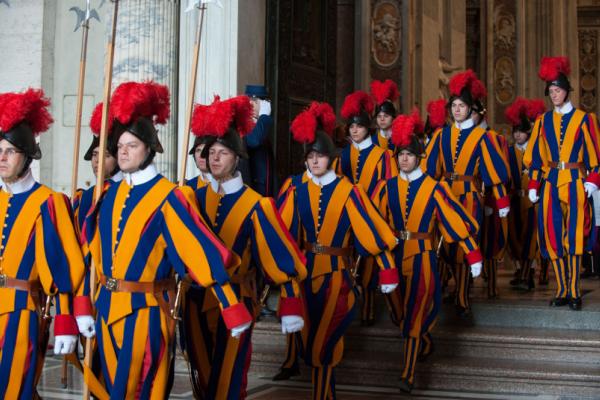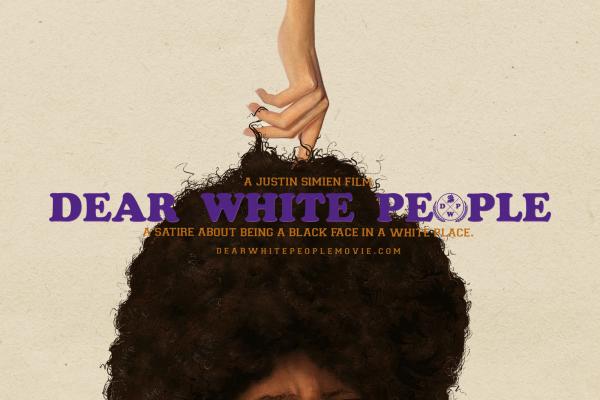The trustees of Southwestern Baptist Theological Seminary have affirmed the school’s president, Paige Patterson, after investigating his decision to admit a Muslim student into the school’s Ph.D. program.
Patterson, one of the most revered Southern Baptist figures and an architect of the conservative resurgence of the Southern Baptist Convention a generation ago, faced heavy criticism from some Baptists who accused him of violating the standards of his school in Fort Worth, Texas.
“We join with our fellow Southern Baptists in appreciation for and admiration of the evangelistic heart of our president, Paige Patterson,” the trustee board said in a statement Oct. 22 as it concluded its fall meeting.
“Any violations of the seminary bylaws were done in a good-faith enthusiasm to pursue the seminary’s purpose, as set forth in its articles of incorporation.”
The trustees have closed their investigation, and Patterson explained after the meeting that the Muslim student, Ghassan Nagagreh, is no longer enrolled at the seminary.
They say you can feast like a king, and now you can eat like a pope after a young chef from the Vatican’s Swiss Guards published a cookbook featuring the favorite recipes of Pope Francis and his predecessors.
David Geisser, 24, who joined the elite Vatican security corps only a month ago, released his book, titled “Buon Appetito,” in Rome on Oct. 21.
The cookbook includes recipes for Francis’ favorite dishes, such as empanadas; roast sirloin, known as “colita de cuadril”; and “dulce de leche,” a milk-based Argentinian dessert that began appearing on Vatican dining tables when the archbishop of Buenos Aires was elected pope last year.
But it also features one of St. John Paul II’s favorite dishes, Polish pierogi, or stuffed dumplings, and Bavarian delicacies favored by Pope Emeritus Benedict XVI.
An alliance of evangelical organizations has pledged to dramatically increase the number of church-based legal clinics across the country to assist immigrants with the complicated processes of seeking green cards, visas and family unification.
The Immigration Alliance, a network of 15 evangelical denominations and ministries, on Oct. 21 launched a plan to reduce the gap between the 22 million immigrant noncitizens and the 12,000 private immigration lawyers in the country.
“Churches are a trusted presence in immigrant communities that can — and should — help address this critical shortage of legal services,” said Noel Castellanos, the alliance’s board chair and the CEO of the Christian Community Development Association, in announcing the new venture.
The alliance, which was formed in 2013, estimates that there also are 2,800 nonprofit attorneys and accredited staff in the country. The umbrella network includes the National Association of Evangelicals, the Assemblies of God, the Church of the Nazarene and the National Latino Evangelical Coalition, among others.
Editor's Note: Global warming means rising sea levels, worsening extreme weather events, and a threat to God’s creation and people. The world has not experienced normal global temperatures since 1985. So while some might call them millennials, anyone under the age of 30 is part of the “Climate Generation.” If you’re under 30, congrats! You’ve inherited a big problem. Dorothy Boorse is a science professor, a Christian, and a parent, and she has some words for the Climate Generation.
Dear younger ones. You idealistic, smart, and entrepreneurial folks, take courage! I am speaking from an earlier generation, but one with you, caring for each other and our lovely world. I have two sons: one home-grown in the more common way, and one gained through a long process I often call “my paperwork labor.” For one of them, I ate for two, then sweated and yelled in an epic battle to get him out into the world. For the other, I had certificates of health and finances and assessments printed, travelled abroad, and got my husband to write an autobiography. Both were arduous journeys, and both of my sons are loved more than I can describe.
Yesterday a gunman opened fire in Ottawa and killed a soldier at a war memorial. It is a stark reminder of the kind of world we live in every time a life is taken through violence. My prayers are with the victim and his family and for the authorities leading the investigation in trying to understand the shooter’s motives.
Like Ebola and ISIS, the shooting is spreading fear around the world. It is not unnatural to experience fear as a reaction to danger. However, reacting out of fear instead of wisdom is the mistake we must stop making.
What happened in Ottawa is also a reminder for me that while we can’t remove all violence, we can take steps as a country to reduce it. In 2011, the last year complete numbers are available, 32,163 died in America due to gun related deaths. In Canada that same year the number was 781. While gun violence can happen anywhere, as Ottawa shows, it happens much more in the United States than any other developed country.
Why the discrepancy? The full answer is complicated, but one of the driving factors is not.
A Sandy Hook Father’s Plea from Sojourners on Vimeo.
Lonely Planet just ranked Washington, D.C., as the #1 Best Place to Travel in the world(!). Coming on the heels of Forbes crowning D.C. the coolest city in America in August, the admittedly unexpected parade of accolades appears to just be starting for the place Sojourners has called home for the past few decades.
Of course, “coolness” is elusive by nature — if it was measurable, it wouldn’t be cool — and the metrics used by both outlets are questionably desirable, if technically true for a portion of the city. Lonely Planet points to a city “whose official religion is national politics,” while Forbes lists “higher influxes of new people” and “most college degrees per capita.”
This shows a problematic tendency to weight Washington the industry over D.C. the city (this post from DCis toutlines that nicely). It also largely misses what’s actually great about this place. I’ve found D.C. to be far beyond the House of Cards-meets-Cherry Blossom Festival sketch beloved by press and many residents alike. In my daily experience, D.C. is collaborative, generous, and deserving of accolades in ways that continually surprise.
Based on my very unscientific metrics of personal observation and emotional investment, here are a few things that are uniquely great about D.C.
I was asked to contribute a chapter to a new book called Disquiet Time: Rants and Reflections on the Good Book by the Skeptical, the Faithful, and a Few Scoundrels. The volume, an edited compilation put together by Cathleen Falsani and Jennifer Grant, takes on many of the weird texts in scripture that we either gloss over or completely ignore because they’re just too … well, weird.
Of course there are plenty of spiritual oddballs to choose from, but as soon as I got the invite, I knew I wanted to write about the book of Revelation (note that there is not “S” at the end; there is no such book as Revelationsssssssss in the Bible). Suffice it to say that my relationship with the last book in the bible is a little bit complicated. In fact, it ruined my potential career as a lifetime Baptist. A number of you may have heard bits or pieces of the story about how I got kicked out of church as a teenager, but may not know all the details.
Well kids, you can blame it all on one freaky Bible book, one intransigent teenager and a floppy-Bible-wielding youth minister. But although the experience pushed me out of church for a solid decade, it didn’t forever ruin my search for the divine. But this particular story isn’t about that. It’s about how I got one particular youth minister so red-faced and flustered that he cussed me out and almost hit me square in the noggin with the Good Book.
At an organization where 45 percent of U.S. senior leaders are women, Romanita Hairston’s gender is mostly a nonissue as she oversees children’s welfare programs at World Vision, the giant evangelical relief agency.
But in the larger evangelical universe, high-ranking women like Hairston remain a relative rarity.
“I think it’s kind of inappropriate at this time in history to be shocked, but I think there are places where I’m one of the few women in a position of authority or shaping theological perspective,” said Hairston, a World Vision vice president who serves on boards and teaches about gender inequity at Seattle Central Community College.
Once the first person in America died from Ebola, the usual bigots and ideologues blamed it on President Obama, whom they loathe. Some suggested Obama deliberately allowed the virus into the U.S. for nefarious purposes.
“He wants us to be just like everybody else, and if Africa is suffering from Ebola, we ought to join the group and be suffering from it, too. That’s his attitude,” said Phyllis Schlafly, the matriarch of America’s religious right.
Every misstep will be laid at the president’s doorstep, as if he personally ordered a Dallas hospital to screw up.
Such nonsense plays well in an election year, at least with a certain portion of the electorate. But the question remains: How are we as a society to deal with a potential contagion that could impact our lives?
Our worst instincts, as always, will be to blame whatever we don’t like, to imagine barriers and travel bans that would protect us, and to turn against each other. Schlafly, for one, blames Obama personally for “letting these diseased people into this country to infect our own people.”
It might be tempting for some viewers to see Dear White People as over-the-top. To see some of its characters as caricatures, or the offensive party that makes up its climax — with white students dressed in blackface — as unrealistic. But it’s not. For evidence, you only need to look as far as the credits, which show photos from similar events at other schools across the country. And when the president of Winchester claims that “racism is over in America,” it doesn’t sound too different from Bill O’Reilly’s similar claim on The Daily Show just last week.
Dear White People is clever, loving, angry satire. It’s a multi-faceted exploration of race in a time when such portrayals are needed, like peroxide on a deep cut. The film sometimes falters in its process, but delivers the goods when it matters most. The fact that it comes so stingingly close to reality is stunning. It’s funny. It’s sad.









